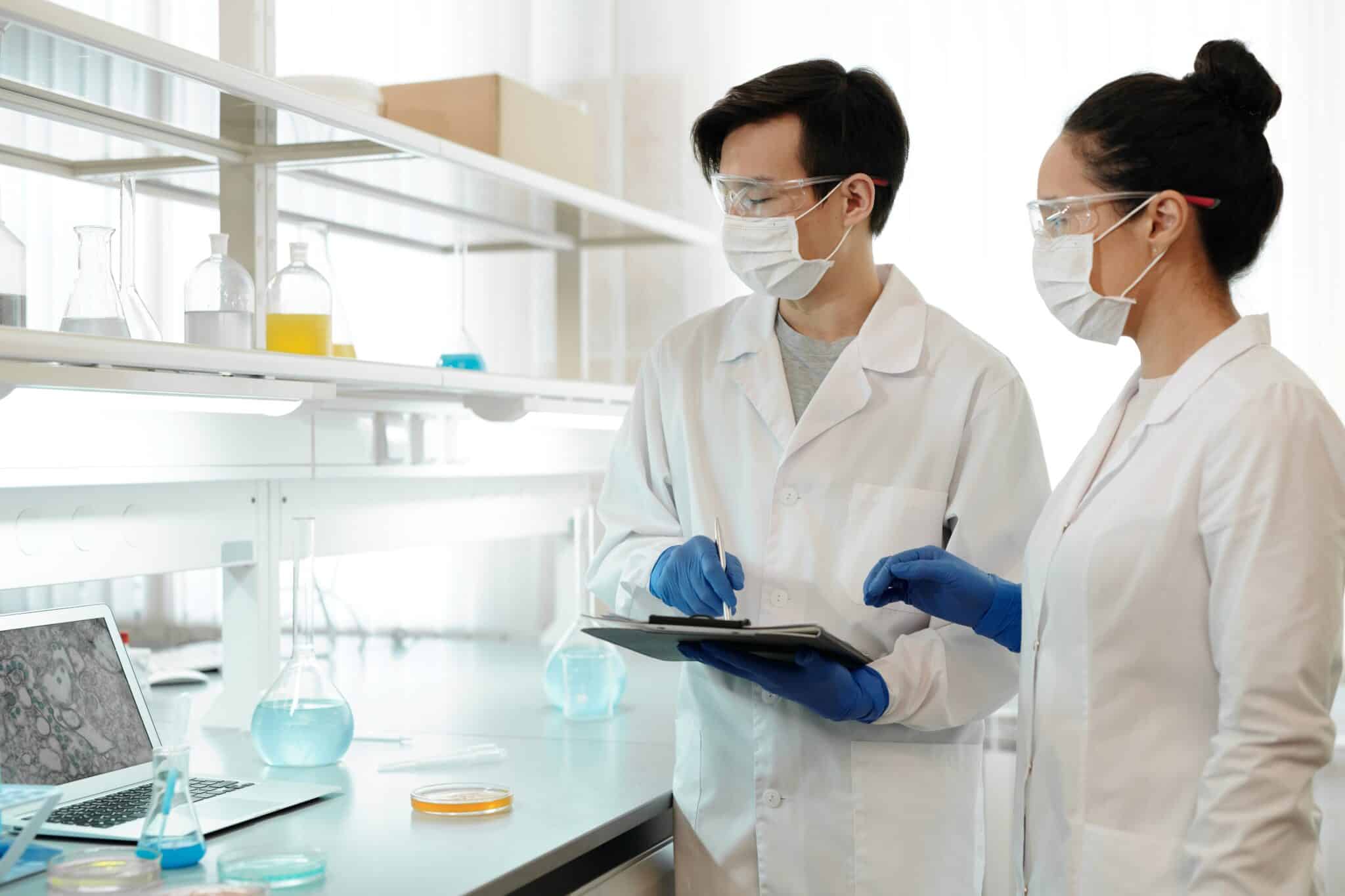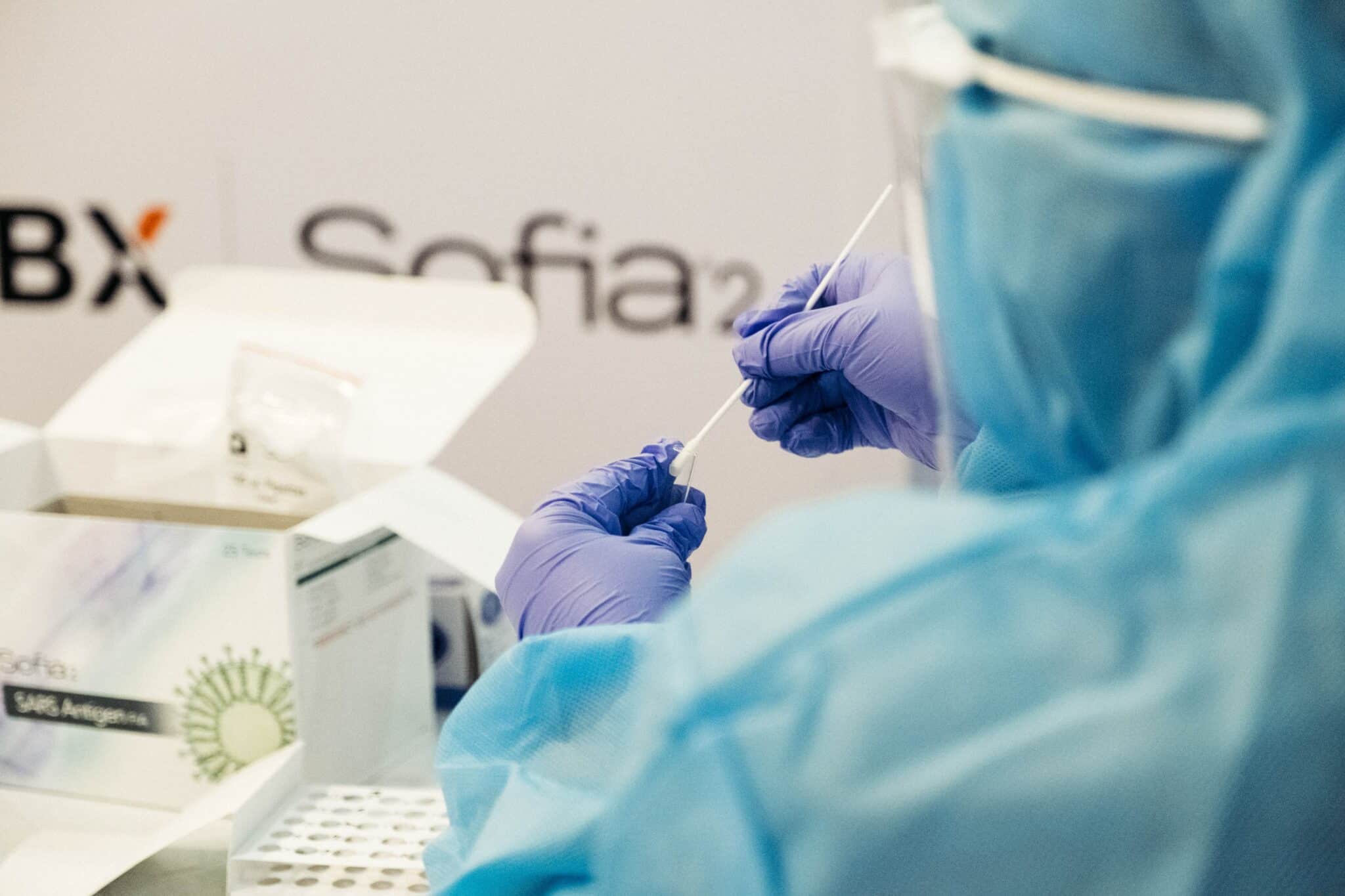What Are Antigens? An Accessible Guide

We’ve all been tested at some point during the COVID pandemic. Among the many COVID-19 tests available, antigen tests were the most popular due to their low price and ease of use.
But what are antigens? In today’s post, we’ll give you an overview of how antigen testing works. We’ll also answer some frequent questions, including:
- What are antigens?
- What types of antigens are there?
- What is an antigen test?
- How does antigen testing work?
- What types of antigen tests are there?
Without further ado, let’s begin!
What Are Antigens?
Antigens are substances that cause your immune system to produce antibodies against them. In other words, as your body doesn’t recognize these substances, your immune system will try to fight them.
Not all antigens are a threat. In fact, there are millions of them in your own blood cells. But your body recognizes those antigens as safe and ignores them.
Antigens can be found in:
- Bacteria
- Viruses
- Chemicals
- Pollen
- Parasites
- Tumor cells
- Normal cells
Type of Antigens
Antigens are classified according to where they come from. There are multiple types of antigens, including:
- Exogenous antigens, which come from foreign substances and can enter your body through your nose, mouth, or cuts in the skin. E.g: Bacteria, pollen, fungi, parasites, and viruses.
- Endogenous antigens, which are found in your body’s cells. Depending on their nature, they can be benign or harmful
- Autoantigens, which live inside your body. They’re the cause for autoimmune diseases, your immune system fights these antigens, although it shouldn’t.
- Tumor antigens, which are on the surface of tumors.
What Are Antigen Tests?
Antigen tests are typically used to:
- Detect viral illnesses like COVID-19 or the flu
- Follow up on cancer treatment
- Check the eligibility of organ donors and recipients
Moreover, antigen testing can be done by examining:
- Spit
- Blood
- Urine
- Feces
- Other bodily fluids
How Does Antigen Testing Work?
Antigen tests work differently depending on what kind of antigen you are searching for.
When it comes to viruses, a healthcare professional will take a sample from your throat or nose, normally with a long q-tip. The q-tip will then be tested to determine whether it contains the antigens that they’re looking for.
You can perform these antigen tests at home as well. Generally, you can get the results in about 15 minutes.
On the other hand, other types of antigen tests (like those that monitor cancer treatment or check tissue compatibility) require a different testing technique. In these cases, the healthcare professional will take a sample from either your blood, urine, or feces.
Antigen test accuracy will vary depending on the antigen type you’re looking for and the method you use.
Types of Antigen Testing
The most common antigen tests are:
- Carcinoembryonic antigen test (CEA)
- Hepatitis B surface antigen test (HBsAg)
- Human leukocyte antigen (HLA)
- Prostate-specific antigen test (PSA)
- SARS-Cov-2 or COVID-19 antigen test
Let’s take a closer look at each of them.
CEA Test
Carcinoembryonic antigens can generally be found in low levels in adults. However, certain conditions can cause CEA levels to rise, such as cancer. Thus, CEA testing is mostly used to monitor cancer treatment, and check its effectiveness.
HBsAg Test
The Hepatitis B surface antigen test is a blood test. It can be used to diagnose hepatitis B in conjunction with other evaluations.
HLA Test
Human leukocyte antigen tests are used to check donor compatibility. Basically, every cell in your body (except for red blood cells) has a combination of HLAs that’s unique to you. In this type of test, health professionals compare the donor’s and the recipient’s HLAs and check if they’re similar. Plus, the recipient undergoes other tests to see if they don’t have antibodies to a donor’s HLAs. Otherwise, their body would attack the donor’s organ or cells.
PSA Test
PSA tests are mostly practiced as routine evaluations to diagnose prostate conditions. Prostate-specific antigens are typically higher in those with prostate conditions, especially prostate cancer.
COVID-19 Test
COVID-19 antigens are proteins present in the SARS-CoV-2 virus. COVID-19 antigen tests are also referred to as “rapid tests”, and they search for antigens of this virus. The sample is taken by inserting a swab in the patient’s nose or throat. This test can be performed either at home or by a healthcare professional. Either way, if you take the test after having experienced COVID symptoms for a few days, the result will be particularly accurate.
Key Takeaways
After three years of the COVID-19 pandemic, we can finally say that life is somehow returning to normal. Nevertheless, COVID is still around, alongside many other respiratory diseases.
Hence, taking care of yourself and others remains of utmost importance. Especially for those who are at risk of severe infection.
Getting tested is one of the best ways to keep COVID-19 at bay.
Want to get tested? No matter where you are, or what type of test you need, find testing locations near you with our global directory.



